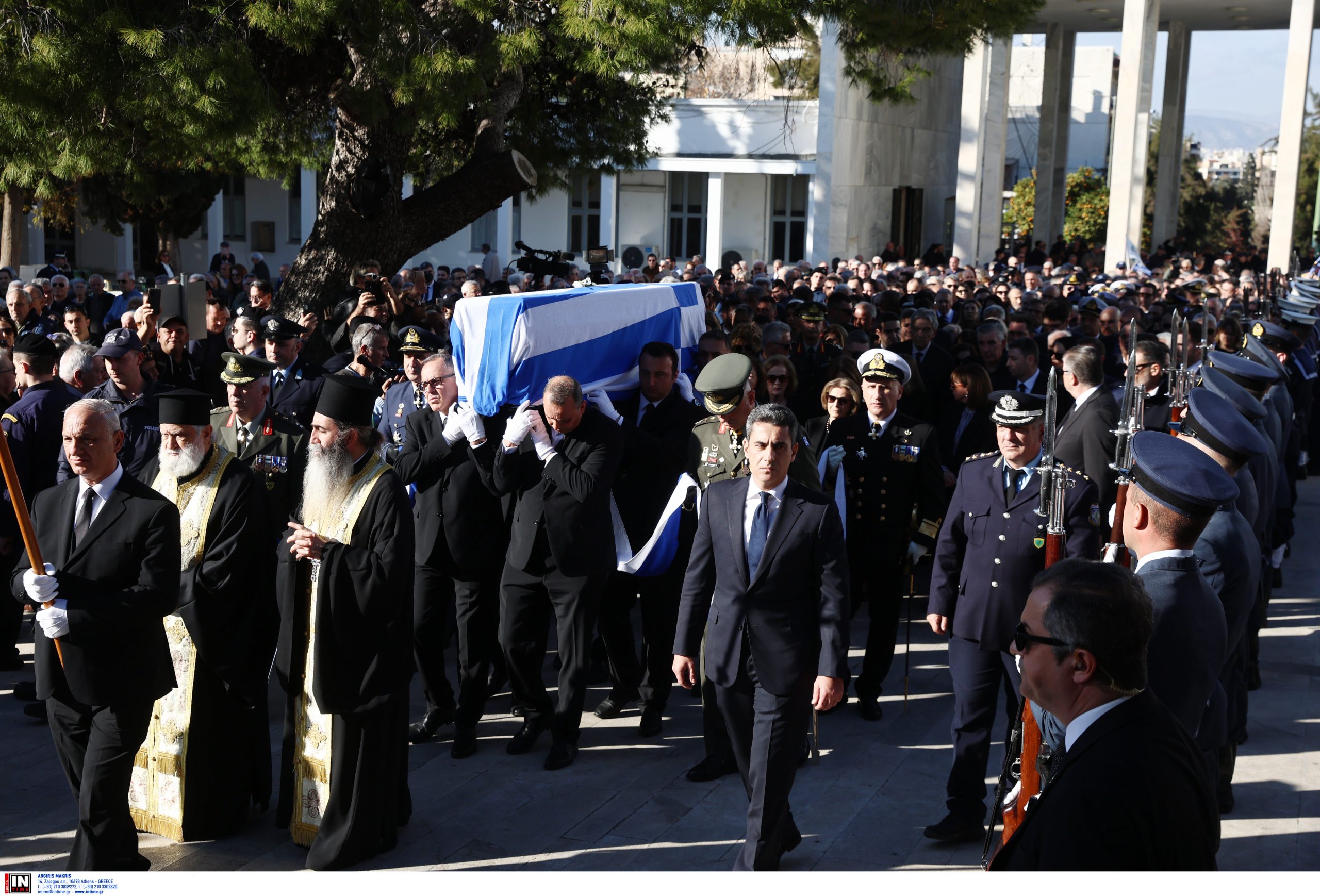The President of Greece, the Prime Minister and the leader of the Opposition met to honor an important politician who has passed away.
They were joined by the state leadership of Cyprus in the person of the President of the Cypriot Republic and the Speaker of its Parliament.
And a large part of the democratic political world bowed their heads alongside them.
Which is right and good. Democracy has an obligation to honor those who served it, and it does it well.
It is an act of institutional civility and political regularity, exercised without pettiness, small-mindedness or mean-spiritedness. The absentees need not concern us.
And for me, the funeral service represented another element of normality. The President, the Prime Minister and the Leader of the Opposition shared an appreciation of the deceased and his contribution.
Their views were nuanced, of course. But held in common.
All three focused on modernization, because that is what Costas Simitis was all about. He incorporated it into the Greek national narrative, and the country’s current leadership continues very much in the same vein.
A modernization that transcends any single government, party or individual to serve as a common denominator for the will and efforts of the nation as a whole.
In other words, however you may embellish or define it—as long as you don’t ignore it—, modernization is now a central axis running through our democracy.
And this modernization comes with the return of a broader center, center-right and center-left together, which is becoming once again the bedrock on which Greek politics is built.
A center that shapes the convergences and confrontations of a modern era, of a fertile and promising future far from the hatreds, hostilities and aberrations of the extremes we have suffered over the past decade.
Because the return to normality and stability is consolidated by the return to the Center.
Which is to say to a political sphere where convergences and rivalries are very much present, but can—and clearly will—be exercised with diplomacy, moderation and mutual respect. And with a focus on the essence.
We don’t all agree on everything, but neither do we disagree.
The eulogies to Costas Simitis had this in common.
You felt they were being delivered by politicians who, though they may have their differences, speak the same language nonetheless.
The question now is how this climate of normality and stability will translate in practice over the next twenty-four hours during the election of the new President of the Republic.
I assume that everyone will do their duty without pettiness, small-mindedness or mean-spiritedness.
There will, of course, be absentees. But the absentees need not concern us.



